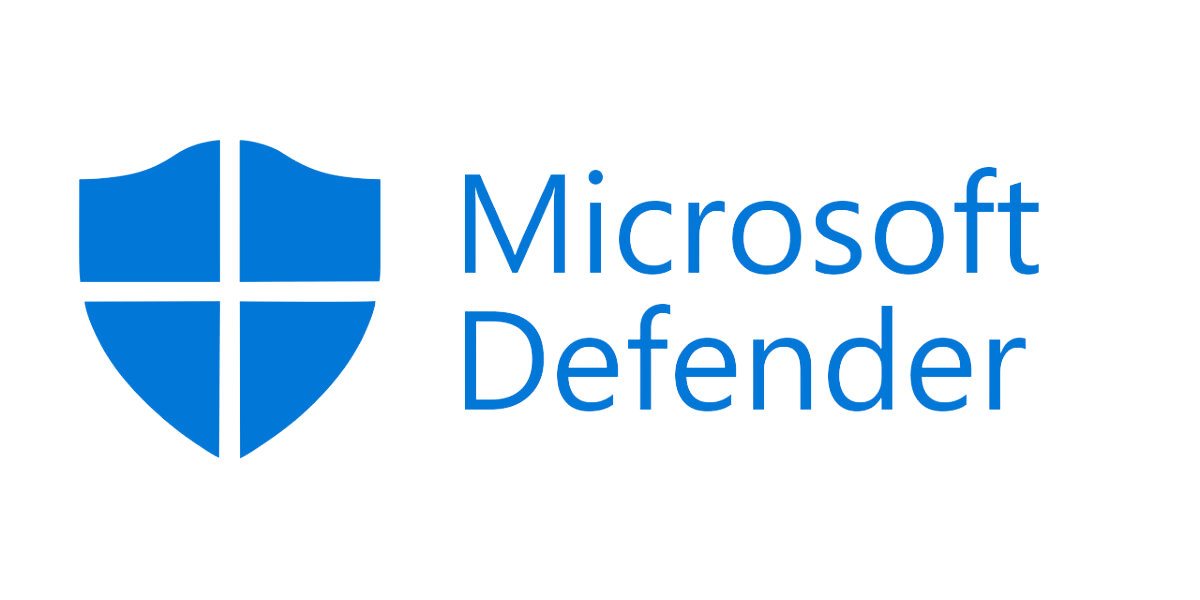Microsoft Defender antivirus review 2024: Everything you need to know
Discover the pros and cons of Microsoft Defender antivirus in our comprehensive review. Is it the right choice for your cybersecurity needs?

Our Verdict
Our Verdict
Microsoft Defender, formerly known as Windows Defender, is a no-cost antivirus software included with Windows operating systems. It is integrated into Windows Security, an inbuilt application in Windows 10 or 11 designed to enhance device security. Microsoft Defender, within the Windows Security app, provides antivirus functionality, including real-time alerts, firewall protection, and network security features.
 Pros
Pros
- User-friendly
- Regular updates
- Some good lab scores
- Low resource usage
 Cons
Cons
- Limited support
- Privacy concerns
- Not suitable for businesses

Starting price
$6.99Phishing protection
YesParental controls/h4> Yes
Microsoft Defender offers strong antivirus protection ideal for individuals seeking free basic security. While it can suffice for some, it lacks comprehensive multi-layered cybersecurity and essential features. For straightforward security needs, such as home use, Microsoft Defender can be sufficient with regular updates and good security habits. However, for more advanced security demands, a third-party option like TotalAV is advisable.
In this evaluation of Microsoft Defender antivirus, we'll delve into all aspects of this cybersecurity tool. However, amidst the rapidly evolving landscape of online threats, the question arises: is Windows' Defender sufficient to safeguard you?
Formerly known as Windows Defender and now part of the Windows Security suite, Microsoft Defender antivirus is widely adopted due to its integration into Windows. Nonetheless, with the escalating complexity of online dangers like malware and ransomware, relying solely on it might not be advisable.
This review of Microsoft Defender will explore its capabilities, limitations, and its effectiveness in combating online threats.
What is Microsoft Defender antivirus?
Microsoft Defender antivirus, previously known as Windows Defender, is a security solution crafted by Microsoft and integrated into the Windows operating system. It delivers continuous protection against various threats such as viruses, malware, spyware, and other malicious software, actively monitoring your system for any suspicious behavior.
The Windows Security suite includes the Windows Firewall and is regularly updated. It conducts automatic scans to maintain your computer's safety. However, it provides only fundamental protection. Therefore, we advise considering commercial solutions for enhanced online security and multi-layered protection.
Additionally, there's a product named Microsoft Defender, included in the paid Microsoft 365 subscription package, which can be confusing.
Microsoft Defender Antivirus’ Performance
To earn high ratings from our evaluation, an antivirus solution must demonstrate strong performance in various tests. This involves testing it against real-world threats such as zero-day malware attacks, evaluating its impact on system performance, assessing its usability, and examining its accuracy in flagging items as threats.
Here's the assessment of how Windows Security and Microsoft Defender Antivirus fared against top antivirus solutions in tests conducted by AV-Test.
| Antivirus solution | Protection | Performance | Usability |
| Microsoft Defender antivirus | 6/6 | 6/6 | 6/6 |
| Norton | 6/6 | 5.5/6 | 5.5/6 |
| TrendMicro | 6/6 | 6/6 | 5/6 |
| TotalAV | 6/6 | 5.5/6 | 6/6 |
| Avast | 6/6 | 6/6 | 6/6 |
| Malwarebytes | 5.5/6 | 5.5/6 | 6/6 |
During testing, Microsoft Defender Antivirus successfully detected 100% of zero-day threats and prevalent malware, while maintaining minimal impact on system performance and avoiding any false warnings. These results are commendable, particularly considering its status as a free antivirus solution. The firewall and real-time protection functions performed as expected, making Microsoft Defender a solid starting point.
However, it's important to note that full utilization of these features typically requires sticking to Microsoft products exclusively. Using alternative browsers like Chrome instead of Edge may leave you unprotected by the Windows Security suite. Additionally, Microsoft Defender lacks the extensive feature set often found in third-party solutions. Premium antivirus packages often include extras like VPN services, password managers, dark web monitoring, and identity theft protection, providing a more comprehensive security solution.
Microsoft Defender antivirus’ security features
Microsoft has dedicated significant effort to enhance the functionalities of Microsoft Defender Antivirus. It boasts user-friendly navigation and requires minimal configuration. Within the Windows Defender Security Center, users can access the following security features:
Real-time protection and scans
Microsoft Defender Antivirus constantly monitors system operations, actively searching for suspicious behavior and files, thereby offering continuous protection against various threats such as viruses and malware. It conducts scans on files, programs, and network activities, instantly scrutinizing any opened files or programs for potential malicious activity.
The Windows antivirus offers:
- Comprehensive scans – Examines all files and programs across your device
- Customized scans – Reviews designated files and folders
- Quick scans – Inspects commonly infected files and processes swiftly
- Microsoft Defender offline scans – Evaluates your device offline, valuable if already infected
- Individual file scans – Easily check specific files or folders in File Explorer by right-clicking and selecting "Scan with Microsoft Defender"
If any suspicious activity is detected, the Windows antivirus promptly notifies you, providing options to either quarantine or completely remove the threat from your system.
Firewall protection
Windows Security includes a firewall feature designed to prevent unauthorized access to your computer. This strengthens your network security and provides an additional safeguard against potential attempts to take control of your system.
SmartScreen
This function shields you from phishing websites and harmful downloads by assessing websites and file downloads instantly. Essentially, it functions as a secondary firewall, preventing access to unsafe or dubious content.
Controlled folder access
The Windows Security feature safeguards crucial system directories and sensitive files by thwarting unauthorized access, thus inhibiting hackers and ransomware attacks.
Users can designate specific folders for protection, ensuring that only approved applications can modify them. This customization empowers users to tailor their protection according to their individual requirements.
Device performance and health
In addition to monitoring network activities and files, Windows Security also oversees the overall condition of your computer. It provides suggestions and advice on maintaining system security, examining aspects such as storage, battery life, and installed applications.
Automatic updates
Updates for Windows Security are frequent, delivering the latest virus definitions and security enhancements to ensure timely identification and prevention of emerging threats. These updates are often distributed multiple times per day, reflecting the rapid evolution of threats.
Integration with Windows Security Center
Microsoft Defender Antivirus seamlessly integrates with the comprehensive Windows Security Center, offering a centralized platform for managing various security settings and functionalities.
Moreover, users can access Microsoft Family Safety tools through the "Family options" tab within the security center. These tools enable users to regulate their children's access to specific applications and websites.
Is Windows Security enough?
For years, there's been a recurring question: "Does Windows Defender suffice?" The adequacy of this depends on your online practices and behavior.
If you adhere to safe internet practices, such as avoiding dubious downloads and email attachments, and keep your software updated, Microsoft Defender Antivirus might suffice.
Given that Microsoft Defender Antivirus is entirely free, there's no downside in giving it a try. It's probable that it's already activated and operational if you have a Windows device.
Alternative options offer access to advanced security functionalities such as phishing prevention, identity theft protection, and a plethora of additional features. Moreover, certain assessments have indicated that Windows Security might inadvertently prevent legitimate software from functioning correctly.
Professionals advise employing a trusted antivirus program alongside Windows Security, set to passive mode, to leverage supplementary protection. When installing a third-party solution, Microsoft Defender Antivirus automatically switches to inactive mode, and the transition is seamlessly facilitated.
What Windows Security doesn't provide?
While Windows Security offers a variety of security features, it lacks several essential components found in other antivirus solutions:
Virtual Private Network (VPN)
Many antivirus packages incorporate a VPN, enhancing internet security. Despite this, Microsoft has not yet integrated one. The most effective VPNs offer robust security and privacy features, including 256-bit AES encryption and IP address masking.
Password Manager
Password managers have gained popularity for their ability to securely store passwords and autofill login pages. They generate strong, unique passwords and ensure their security.
Dark web monitoring
Hackers utilize the dark web, accessible only via specialized software like Tor, to trade compromised data. Data breaches can have serious consequences, making it disappointing that Windows Security doesn't include dark web monitoring. This feature detects potential data breaches or identity theft attempts, enabling early intervention to mitigate damage.
Windows Security – Compatibility and user-friendliness
Setting up Microsoft Defender Antivirus is a hassle-free process as it comes pre-installed, requiring no user intervention—it operates seamlessly in the background.
Windows Security, along with Microsoft Defender Antivirus, offers simplicity and convenience, automatically running and updating itself. Upon installing a third-party antivirus solution, Defender Antivirus switches to inactive mode to prevent any potential conflicts or system disruptions.
This security suite is exclusive to Windows 10 and 11. Conversely, Microsoft Defender, included in the Microsoft 365 package, extends its coverage to Windows, Android, Mac, and iOS platforms.
Best practices for utilizing Windows Security
To optimize the performance of MS Defender, adhere to best practices for enhancing computer security, such as ensuring regular Windows updates and scheduling scans.
Critical practices include conducting periodic Windows Defender evaluations to confirm all features are enabled. Activate real-time protection, utilize the controlled folder access feature, enable SmartScreen, and maintain robust passwords. Additionally, consider supplementing security with third-party solutions like VPNs for added protection.
Trust your instincts—avoid downloading email attachments unless certain of their safety and refrain from accessing suspicious websites. If navigating an untrustworthy site, promptly initiate a scan.
Alternatives to Microsoft Defender (Windows Defender)
Let’s take a look at some of the best Microsoft Defender Antivirus alternatives. These are excellent options to pair up with Windows’ Defender as they have features the Microsoft antivirus software is missing.
| Antivirus software | Starting price | Independent test | Max devices | Free version | Top 3 features |
| Norton | $29.99/yr | 17/18 | Unlimited | 30-day trial | - Assurance of 100% Virus Protection - Secure Encrypted Storage - Password Management Solution |
| TotalAV | $19/yr | 17.5/18 | 6 | Free scan | - Protection of Identity - Optimization of System Performance - Management of Passwords |
| Avast | $49.99/yr | 18/18 | 30 | Free plan | - Excellent Free Tier - Webcam Protection Feature - Robust Mobile Applications |
| Trend Micro | $19.95/yr | 17/18 | 10 | 30-day trial, free tools | - Safe Web Browser - User-Friendly Interface - Password Management |
| Malwarebytes | $44.99/yr | 17/18 | 20 | Free plan, 14-day trial | - Free Version and Trial Offer - Browser Protection Feature - Advertisement Blocker |
These options offer extensive features, making them robust selections for antivirus safeguarding. We recommend combining Microsoft Defender Antivirus with one of these solutions to add an extra security layer.
Third-party antivirus solutions also offer multi-device coverage under one subscription, providing enhanced control over device security. This centralizes all necessary information in a single dashboard for convenient monitoring.
In contrast, Microsoft's Defender antivirus solely protects the device it's installed on and lacks the ability to extend its protection to other devices like mobile phones or tablets.














































